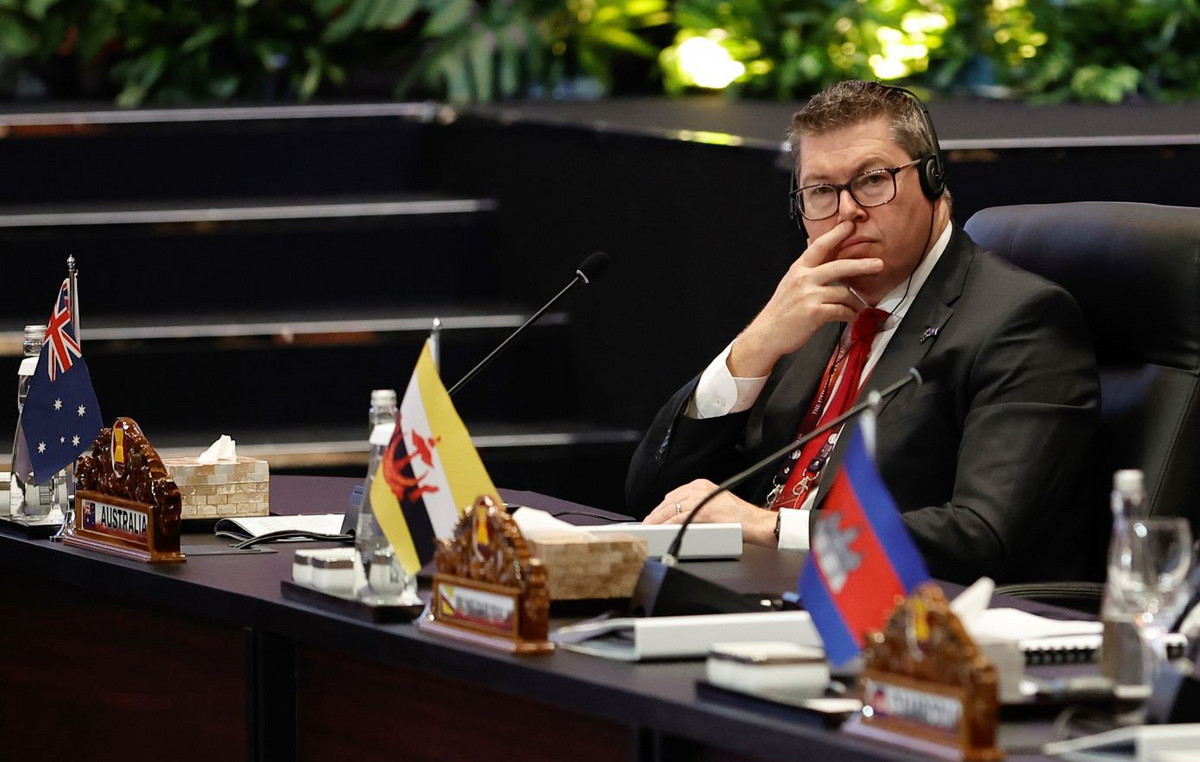Reading stimulates critical thinking and the power of understanding, sharpens analytical thinking, and is not limited to linguistic disciplines alone; the ability to understand is allied in the performance of any student at the beginning of the academic journey and continues to contribute to intellectual formation throughout life, argue educators.
This Sunday (28), thousands of students will take the second stage of the National High School Examination (Enem), focusing on Biological Sciences and Mathematics. And, even in areas considered to have exact and precise reasoning, interpretation continues to be an ally.
Professor of Philosophy at the Faculty of Education of the University of São Paulo (FEUSP) Marcos Sidnei Pagotto-Euzebio argues that both Science and Mathematics are languages, with their own structure and “grammars”, and that the exercise of text comprehension is fundamental , because it is in the form of texts – statements, propositions, demonstrations – that science and mathematics come to us.
“Without a mathematical reading of the world (which measures, quantifies, divides, perceives the proportions and relationships between facts and events), the science of nature or any other is not possible. Therefore, text comprehension is fundamental in order to understand the language of science and the mathematical language, because, again, the reading processes are very similar, both in one and the other sphere”, explains the professor with a Ph.D. in Philosophy.
Galileo Galilei stated that mathematics is the alphabet with which God wrote the universe, which indicates very well how we should deal with this modality of knowledge, which is also a way of reading the world.
Marcos Sidnei Pagotto-Euzebio, Professor of Philosophy
Thus, explains the professor, when we realize that scientific discourse and mathematical demonstrations are not arbitrary statements or meaningless abstractions, we note the importance of favoring students’ ability to interpret and understand in all languages.
“Both the empirical world, of nature, and the symbolic world of numbers. Therefore, the exercise of text comprehension is fundamental, because it is in the form of texts – statements, propositions, demonstrations – that science and mathematics come to us”, adds Euzebio.
He highlights that the inability to read properly, without adequate understanding of the texts, brings great difficulty in understanding what the statement of a question about science or mathematics asks for.
“Reading a test statement correctly is a necessary condition for us to be able to read that follows, that of the specific language of the question of biology, chemistry or physics”, he says.
Functional illiterates in Brazil
Data from the Functional Illiteracy Indicator (INAF) indicate that 30% of the Brazilian population, between 15 and 64 years old, is functionally illiterate. In other words, they have limitations in reading, writing, math and in the development of daily activities, such as discerning truth and invention.
Of those considered functionally illiterate by Inaf, 13% have already graduated or are attending high school, therefore, they have gone through all school levels and are still unable to carry out such tasks.
“Being not only literate, but having the ability to interpret and write at a minimum, is an unavoidable condition for living satisfactorily in contemporary societies. We know when someone is not able to read or write. However, things get complicated when, when we know how to deal with written language, but in an unsatisfactory way, we believe that we deal with it in a sufficient way”, says professor Marcos Sidnei Pagotto-Euzebio.
According to Neide Luzia de Rezende, professor of Portuguese Language Teaching Methodology at USP’s Faculty of Education, the Covid-19 pandemic made the educational performance adopted by schools even more serious.
“The school, which is increasingly dilapidated, students locked up behind bars, with poorly paid and poorly trained teachers, with their backward methods, has no democratic breathing space to face it. This pandemic made what was already very bad worse”, highlights the teacher.
Internet x text comprehension
With the large presence of social networks, especially among young people, it is impossible to dissociate technological inclusion from the impacts caused by the deficiency in text interpretation.
For professor Neide Luzia de Rezende, “ideologies manipulated by rancor found space to join only between equals in a creeping symbolization, since they are communities that communicate only for themselves and do not access the other”.
With the emergence of the internet and the varied possibilities for individuals to manifest, it really seems that a trapdoor has opened and a whole world of the most primitive feelings and ideas has been thrown out
Neide Luzia de Rezende, Professor of Teaching Methodology of the Portuguese Language at USP
This is quite common, says the philosophy professor at USP. Someone writes something ironic on a social network, which is interpreted literally by someone who is not able to perceive the figure of irony.
“I remember, for example, a discussion in which people criticized the music women of athena, by Augusto Boal and Chico Buarque, for encouraging the submission of women, when what is said in the song is exactly the opposite. We try to overcome this difficulty, sometimes using emojis or hashtags, which, even though they are linguistic elements, exemplify the ambiguity we face in written expression”, says Euzebio.
Therefore, according to the educator, it is essential to expose students to the different forms of genres, styles and figures of written language, and exercise them in them.
“The perception of nuances, allied to the demands of good arguments and good reasons can protect us, even if not totally, from the calls fakes news, of the constraints in posts on social networks, and give us conditions to prepare texts that meet these requirements, whether in the task of answering a test or getting a job”, he says.
How to improve interpretation skills?
You only learn to read by reading, and the more you read, the more you understand. The ability of someone to interpret texts is directly proportional to the amount of texts read by that person, the philosophy professor objectively clarifies.
“All kinds of texts: prose and poetry, novels, essays, biographies, newspaper reports, even medicine inserts. This is how we gain in repertoire, that we acquire tools to deal with texts and reality (which requires reading and criticism in the same way as a text)”, says Euzebio.
According to professor and researcher Neide Luzia de Rezende, the different ways of organizing language into different genres, whether oral or written, reveal angles of social life.
“In other words, to understand the world we need to communicate through different textual forms: the news, the media, which inform about events; the documents of laws and regulations, on the management of public life; the literary ones who fictionally recreate the world.
To penetrate these texts is to advance in the knowledge that one has about oneself and the world, since they put us in front of many new events. And this knowledge is essentially through language in its multiple cultural manifestations
Neide Luzia de Rezende, professor of Portuguese Language Teaching Methodology at USP
The educator adds that reading good texts at school teaches her to know the language, to master the levels of the language in its different registers, to understand in which social space the texts circulate, what their communication purposes are and – of course – help to read with proficiency the statements of the questions of the entrance exam.
“Of course, such statements correspond to the semantic universe of areas of knowledge and often to a specific terminology, so it is important that they study the materials and know the respective concepts, however, having exercised reflection on different texts, including literature, the senses emerge with more clarity and speed, which is very important for taking the test”, says the teacher.
Philosophy’s contribution to this process
What education is expected to do is to prepare us to be able to criticize, or to make good judgments, based on the exercise of understanding. Philosophy, which requires valid arguments and operates through logic, consistency in the use of language, and which comes down to us as a literary tradition, can contribute to this process, explains the Philosophy professor at USP.
“Philosophy can help us by teaching us that even when one thinker presents his ideas as definitive and absolutely right, another thinker will find reasons to criticize or disagree with them. For many, this is a weakness of philosophy, which never gives definitive answers about anything, and reading these authors would be a waste of time”, he says.
“Those who think like that are mistaken because what philosophy shows us is, at the same time, both the power and the modesty of thought. Power, because we are able to expand the limits we give to the world, always finding new meanings in it, and modesty because this is a task that never ends, never, always renewed in each human generation”, adds the professor.
Reference: CNN Brasil







